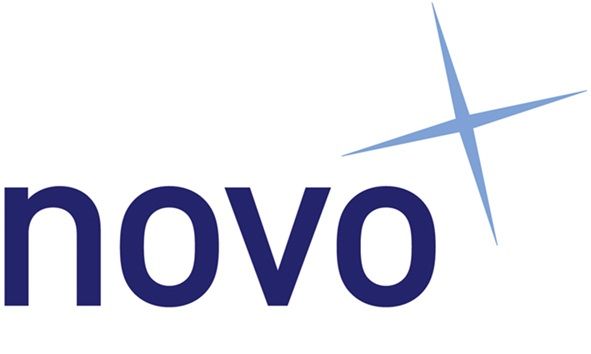How to Avoid Fads in HR

In the face of continuing challenges for HR in the wake of the pandemic, it’s tempting to look for solutions in the waves of fads that are continually promoted at conferences, in books and on LinkedIn. This would be a serious error, argues organisational psychology professor Rob Briner.
I guess we’ve all had this experience. Perhaps it happens when we’re flicking through a HR magazine or wandering around the commercial exhibition of a large HR conference. Maybe when we’re checking out the best-selling management books on Amazon or skimming the posts popping up on our LinkedIn feed.
Surrounded by fads
What is this experience? It’s the feeling that almost everywhere we look the HR world is dominated by the latest thing, the brand new approach, the cutting-edge technique. These fads are presented in a way that implies all the things we’re doing right now – which were of themselves the latest thing not so long ago – are next to useless. What we must do immediately is ditch what we’re doing now and instead jump aboard the next fad bandwagon.
Those of us who’ve been around for even a little bit know from experience that it’s highly likely that fairly soon we’ll be leaping off that particular fad bandwagon and onto the next.
Perhaps you’re thinking “but you’ve got to try new things, right?” or “doesn’t this just go to show that HR as a function is learning, innovating and experimenting?” or even “where’s the harm?”.
Such thoughts make perfect sense if, every time we adopt a new practice or technique we are using data and evidence to carefully analyse our specific organisational issues and then doing the same to choose, after weighing up the evidence, the particular practice or technique which is most likely to be effective.
But, of course, in the world of HR fads this is exactly what never ever happens.
Red flags for fads?
You may already be anxiously wondering if any of the things you and your team are doing right now are superficial passing fads or something more serious and sustainable. Sometimes I’m asked to provide a list of what I consider to be current HR fads. But, rather than relying on someone else’s opinion, I think it’s much more helpful if we work out for ourselves whether the thing we’re doing or planning to do is likely to turn out to be a fad.
So are there any red flags for fads? Indicators that might warn us possible danger? Luckily there are quite a few.
First, fads are usually attractive. And I mean really attractive. It seems that sometimes we even fall a little bit in love with them and, as a consequence, we can’t bear to hear anything said against them. But HR practices are not supposed to be attractive or desirable or objects of desire. They are practical steps we can take to help the organisation achieve its goals. How we personally feel about them should not play a role.
Typically, fads are adopted in the absence of any clear diagnosis of a problem”
A second tell-tale sign that something is probably a fad is when there is no convincing answer to the question: “For what problem is this the solution?” Typically, fads are adopted in the absence of any clear diagnosis of a problem and, through a process called “solutioneering”, the “problem” becomes defined as the absence of the solution or potential fad. For example, “the problem is we don’t have a leadership development programme” or “the problem is we need an employee wellness app”.
A related way of identifying whether any particular practice is a solution in search of a problem rather than real solution to a real problem is to ask “what would happen if we stopped doing this tomorrow?”. And, again, if there is no convincing answer then it’s likely that the practice was adopted quickly with little analysis or evidence.
In addition to these red flags, Danny Miller and Jon Hartwick in a 2002 article in Harvard Business Review suggested that management fads are:
- Simple – quickly understood.
- Prescriptive – tell you what you should do.
- Falsely encouraging – promise impressive results for many outcomes
- One-size-fits-all – work everywhere
- Easy to cut-and-paste – can be quickly partially implemented
- In tune with the zeitgeist – fit with current ideas
- Novel, not radical – they sound new but usually only superficially different to what’s gone before
- Legitimised by gurus and disciples – their credibility comes from the opinions of influencers rather than evidence
It should be clear by now that adopting fads limits the HR function’s contribution to the organisation because they are unlikely to be effective and worse, may even cause harm because they may have negative side effects and prevent the adoption of practices that actually do help the organisation.
Using evidence-based HR to protect ourselves from management fads
In addition to paying attention to red flags for fads described above, another way of ensuring we don’t fall for fads is by practicing in a more evidence-based way. Recent research from the Corporate Research Forum examines the profession’s understanding and use of Evidence-Based HR and explores how its principles can be applied.
It should be clear by now that adopting fads limits the HR function’s contribution to the organisation”
But what are the principles of evidence-based HR?
- Use multiple sources and types of evidence – including professional expertise, organisational data, stakeholder perspectives
- Adopt an explicit and structured approach to gathering and using evidence. In particular starting always with a detailed diagnosis of the HR-relevant business issue or challenge
- Focus on the most trustworthy or reliable evidence rather than all the evidence.
We apply these principles first to gathering evidence about the specific business-relevant HR issues we face and, when clearly understood, applying exactly these same principles to gathering evidence to make a decision about a likely solution or intervention.
By following this process and sticking to the principles it is more likely that HR will avoid fads and instead identify important business-relevant issues and implement only those practices which are most likely to help.
Originally published on Personnel Today, https://www.personneltoday.com/hr/hr-fads-rob-briner/












